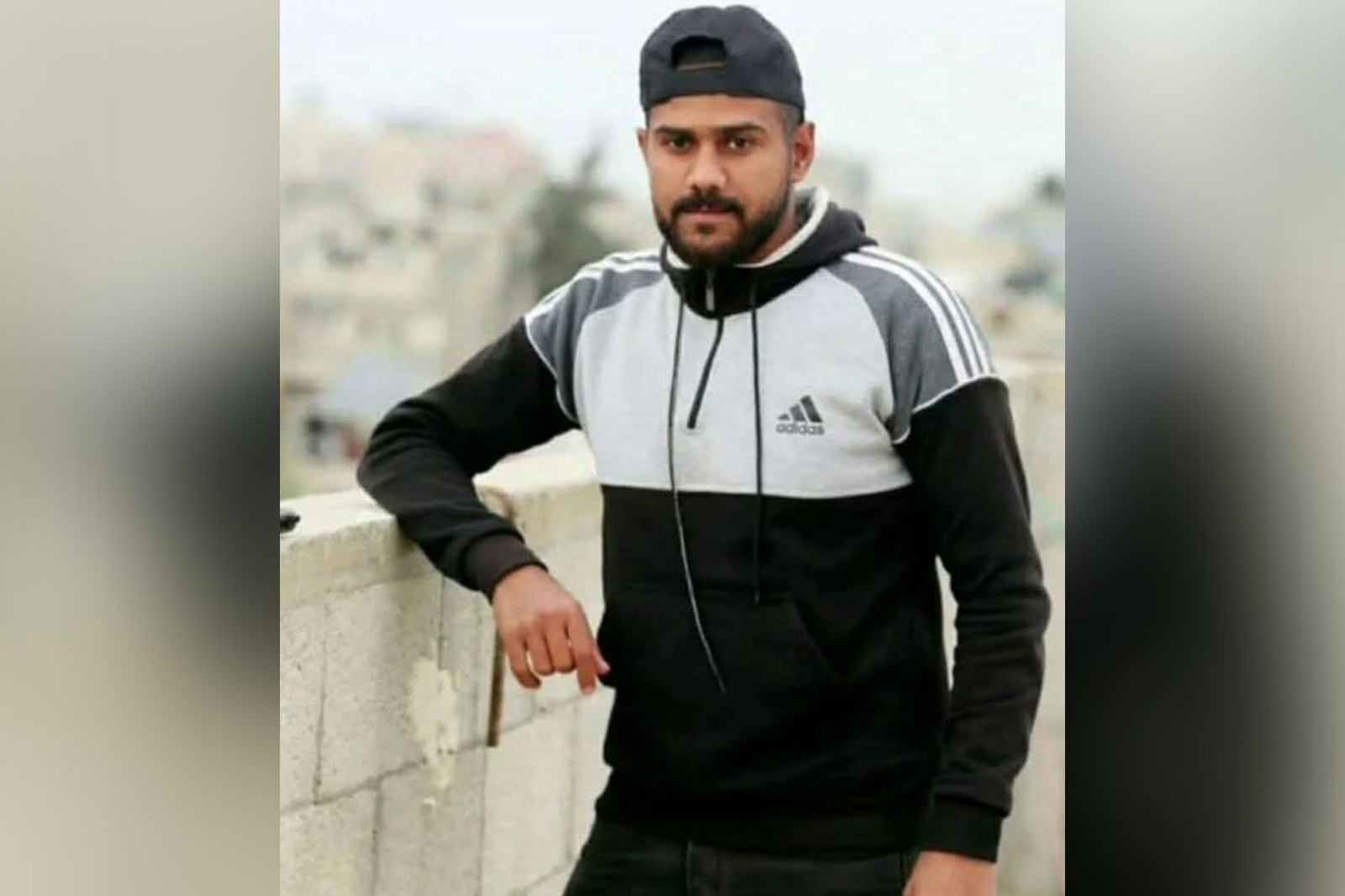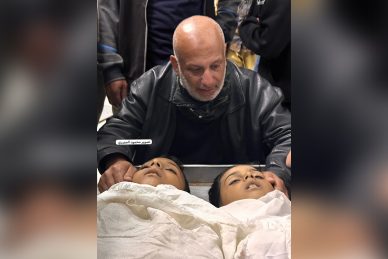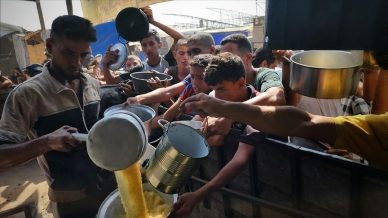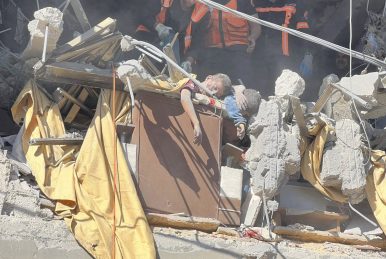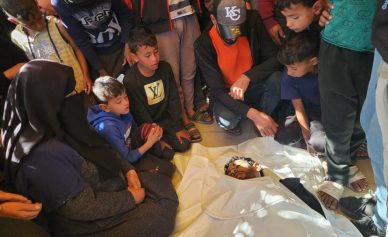GAZA, (PIC)
In yet another scene of Israeli brutality that does not distinguish between civilians and resistance fighters, the Israeli occupation’s hand has once again assassinated humanity, targeting a group of Palestinian youths who carried nothing but hearts filled with compassion and a sense of humanitarian duty.
On the evening of last Saturday, the golden sands of Deir al-Balah camp’s beach embraced a simple youth gathering when Israel’s killing machine struck with a treacherous missile that targeted their small tent, leaving behind a horrific scene of destruction and bloodshed.
Martyrs of humanitarian duty
Abdullah Fouad Mohammed Thabet was not alone in the field of sacrifice; alongside him were the martyrs Mohammed Youssef Ibrahim Abu Zubeida and Ibrahim Omar Ismail Tanira. They had rushed to rescue those injured in the first strike, but they were met with the occupation’s missiles, which showed no mercy for their humanity, striking them directly and killing them in moments.
In an emotional interview with the martyr’s father, Fouad Thabet, grief was evident in his voice, but his patience and resilience were greater than his tears.
Speaking with a tone that mixed bitterness and pride, he told our correspondent, “My son Abdullah was human in every sense of the word. His heart was big; he could never see someone in need and leave them. When he heard the explosion, he didn’t hesitate for a second—he ran to save the youths. But the occupation didn’t give him a chance; they targeted him with two treacherous missiles while he was doing his humanitarian duty.”
With a trembling yet firm voice, he added, “Abdullah is not dead. He lives in our hearts and in the hearts of everyone who knew him. They loved him because he was kind, well-mannered, and cared about others more than himself. I am proud of him, despite my pain and heartbreak, because he was martyred while helping others. This is who Abdullah was, and this is our people—always ready to sacrifice their lives for their homeland and for humanity.”
He concluded his speech with a clear challenge to the occupation, “You killed Abdullah, but you cannot kill his spirit. His soul will continue to hover over the skies of Deir al-Balah, and Palestine will continue to give birth to thousands of young men ready to sacrifice like Abdullah, if not more. This is our homeland, this is our land, and we will remain on it despite all the killing and destruction.”
Eid Night… The absence of joy and the presence of loss
On the eve of Eid, when homes are usually lit up with celebrations and greetings fill the air, the houses of the martyrs—Abdullah Fouad Thabet, Mohammed Youssef Abu Zubeida, and Ibrahim Omar Tanira—were drowning in sorrow.
They were supposed to be with their families, sharing moments of joy, laughing with their siblings, and going out to buy sweets. But they were absent in body, while their memory filled every corner of their homes.
Abdullah’s father, who was used to hearing his son say, “Blessed Eid, father,” on the eve of Eid, found himself this time standing before Abdullah’s picture, placing upon it a keffiyeh his son used to wear, murmuring words mixed with pain and pride.
With deep sorrow, he said, “Abdullah loved Eid night. He would prepare his clothes and buy sweets for his siblings. This is the first Eid without him, but he is alive in our hearts, and his spirit hovers around us.”
In Gaza Strip, Eid is unlike anywhere else. It is not just a time for joy, but also a moment to remember those who have been lost. Eid turns into gatherings of remembrance, into recalling the voices of the departed, into prayers for them instead of sharing sweets and happiness.
Eyewitnesses: ‘It was a horrific massacre’
One of the survivors of the massacre described the scene, saying, “We heard the first explosion and saw our friends under the rubble, but we couldn’t do anything. A few minutes later, Abdullah and his companions were running to rescue them, but before they could reach, the second missiles came, and body parts flew in the air.”
A message of resilience amid death
This massacre was neither the first nor will it be the last in the ongoing record of Zionist crimes committed daily against civilians in Gaza Strip.
Yet, the blood of Abdullah Thabet, Mohammed Abu Zubeida, and Ibrahim Tanira tells a new story of resilience—a story of a people who, despite their wounds, remain committed to their humanity and are willing to sacrifice themselves to save others, even in the face of death.
The massacres continue, bodies fall, but the Palestinian spirit remains unbreakable. Abdullah, Mohammed, and Ibrahim did not carry weapons, but they possessed rare souls filled with courage and humanity—souls that the occupation fears more than any weapon.
Will the world move to stop these crimes? Or will silence remain the only response?

